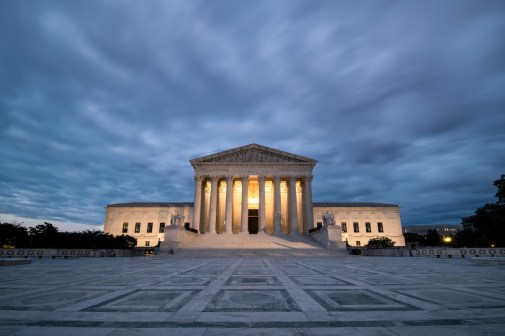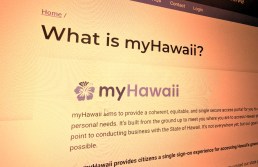Georgia Court of Appeals moves to new secure sign-in for Web services

With 3,500 cases on the docket each year, the Georgia Court of Appeals has hundreds of users clamoring for access to its Web applications to file documents electronically or track the progress of cases.
That presents major security challenges for the court’s IT staff, but a new tool is streamlining the process of controlling who can access the court’s secure services. Workers are now using a combination of NetIQ’s Access Manager and eDirectory software to create secure logins for attorneys and clerks alike, giving users a “single sign-on” for access to all the court’s internal and external websites starting last month.
The new system also lets users access the system at any time from a variety of devices and will show them different views of the court’s sites based on their level of authorization.
It’s the latest in a series of major changes for the court system. John Ruggeri, the court’s director of technical services, said he tries to make the changes easy for users to adapt to.
“That’s our goal, we push distribute on something and we hold our breath and the response has been a lot of silence,” Ruggeri told StateScoop. “The fact that we implemented something and it had absolutely no ripple, is a positive thing in the operations IT world.”
Ruggeri noted that the move toward this type of system started in 2009, when the court first turned to NetIQ to help build its online case management application. Since then, the court has added a variety of features to the tool, and Ruggeri believes the move to the secure login is the logical next step in the application’s development.
“We needed to have a tool that would allow us to grow into it, and handle anything we threw at it, and it’s been very successful with that,” Ruggeri said.
The ability of all of the court’s attorneys and clerks to securely access the website is crucial as the court increasingly allows users to file case documents online, Ruggeri said. With attorneys all over the state registering with the court to start filing electronically over the last several years, the new system can authenticate their identities against a photo directory to ensure that each user receives the right level of access.
The system’s new features will become increasingly important as the appellate court starts accepting more documents electronically.
Currently, the court accepts just procedural documents for the cases, like briefs or motions. Starting early next year, the court’s system will start accepting supporting documents from the trial courts where the cases were originally heard.
“All the transcripts, the paper, and records from the trial court comes to us in big lump sums,” Ruggeri said. “This can fill a couple of stacks of paper, or it could fill literally 20 or 30 banker boxes depending on the size of the case. So our goal now is to begin to get that lump of paper electronically delivered from the trial court to us, instead of being delivered by the mail or the sheriff’s vehicle that drives it up here and dumps it off.”
To cut down on paper, Ruggeri said the application allows each local court system to develop its own tool for sending cases to the appellate court.
“The Web service will ultimately set up the ability for the trial courts to develop software, so they basically create a pushbutton operation that prepares a case for appeal and that their machine will publish to our machine,” Ruggeri said. “All that will pass through Access Manager for security.”
But with 159 county court systems, each with varying levels of technical proficiency, Ruggeri admits that it will be a challenge to get every user to that point. However, the system does let Ruggeri’s staff use a “common standard for authentication,” which should ease some of the conversion process.
Going forward, Ruggeri also hopes to use the “Access Manager” tool to allow for an open standard for authorization, letting users login to the site using credentials from third parties like Facebook or Google.
“We have attorneys in here that don’t file here but maybe once a year, it’s not like they’re filing every day, and sometimes they forget their challenge and response questions because someone did it for them in their office, their paralegals,” Ruggeri said. “That means we have to help them reset their passwords. The more options we could possibly give people is something I’m thinking about.”






